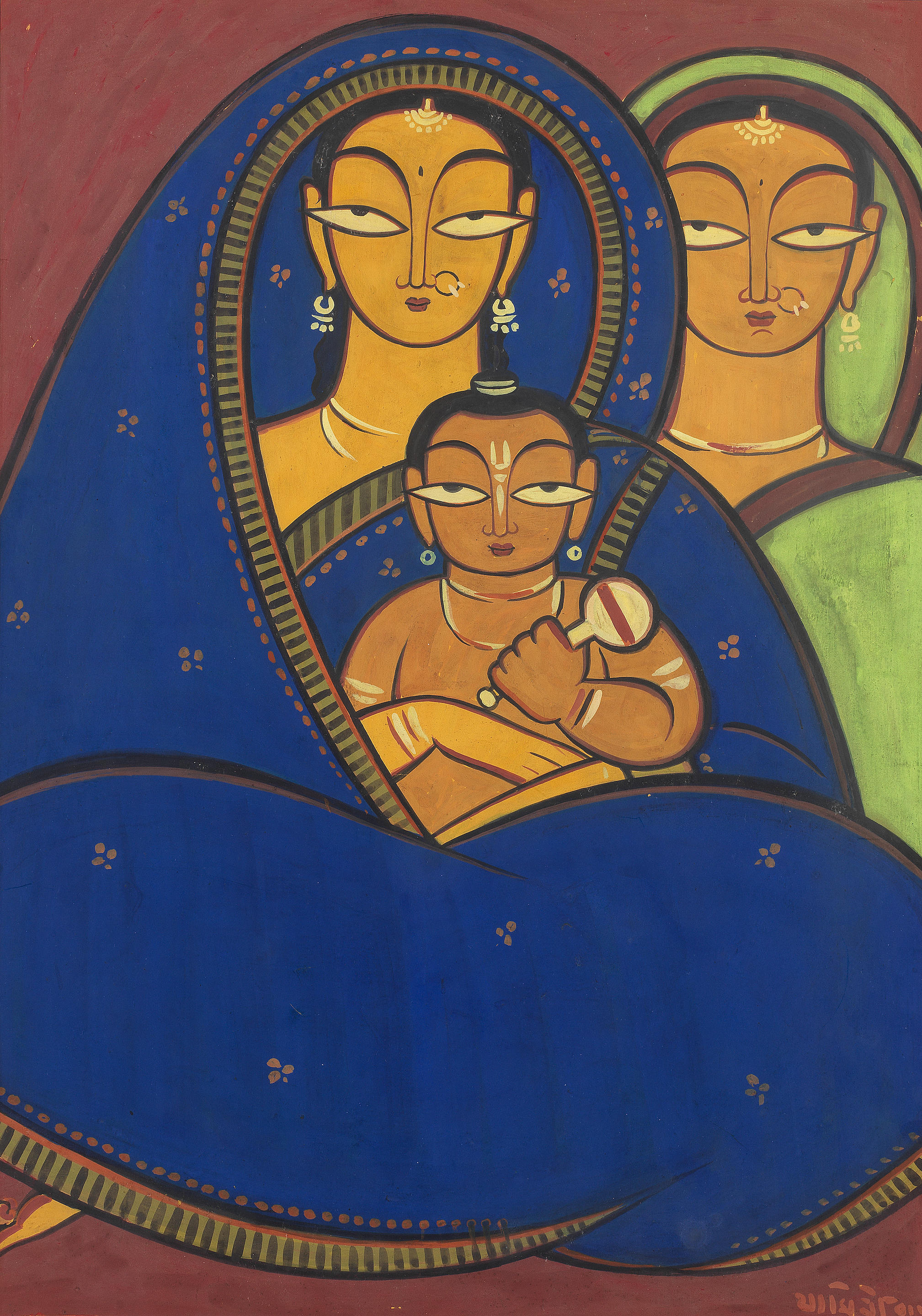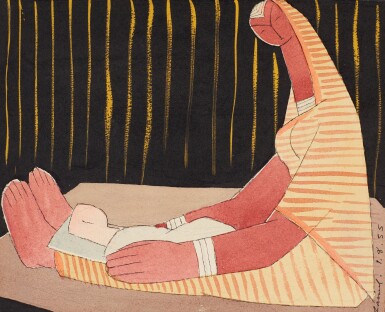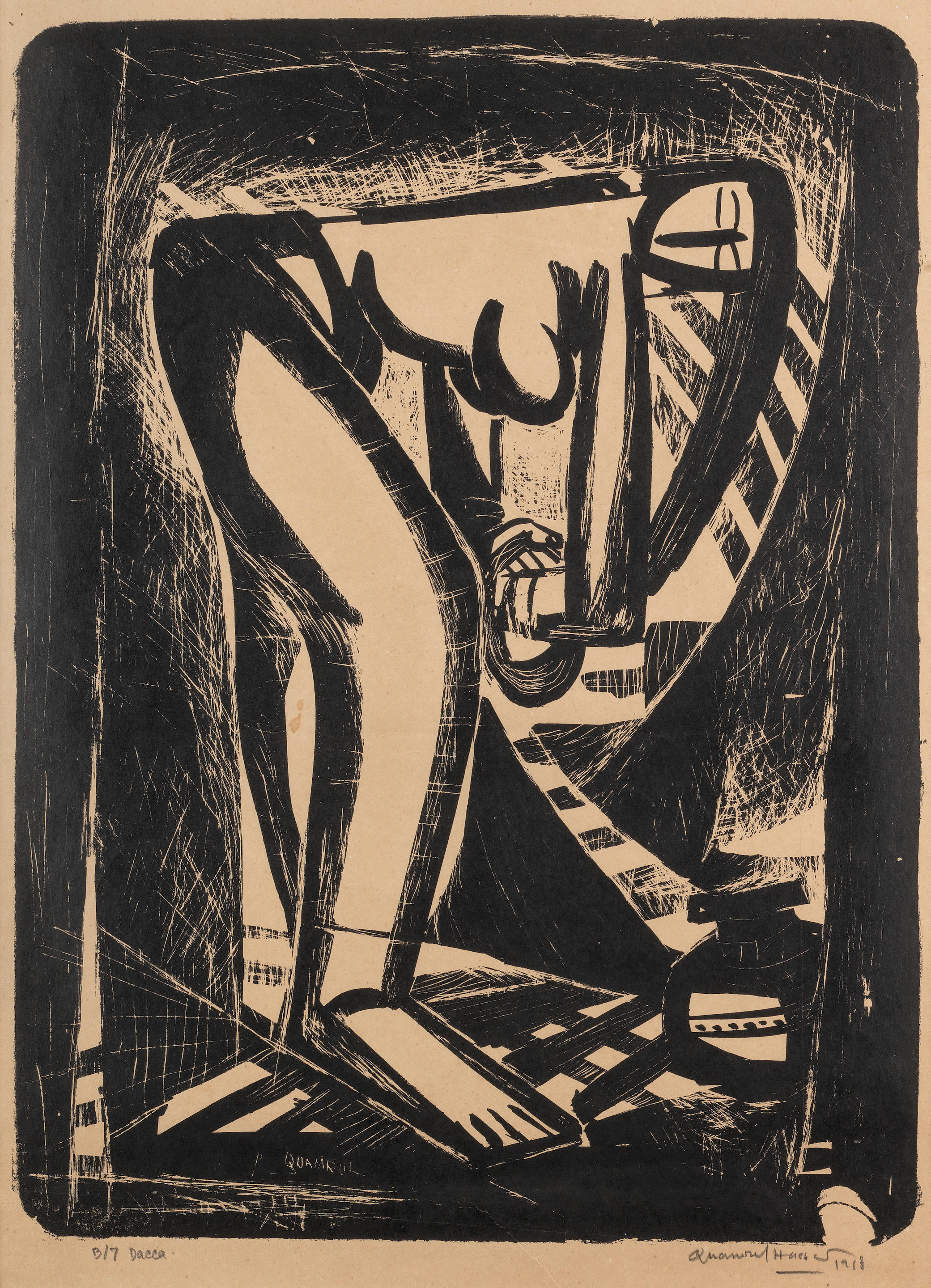Jamini Roy (Indian, 1887-1972) Woman on Horseback, possibly the Queen of Jhansi Signed in Hindi l.r. Gouache on paper, 11 3/4 x 16 in. (29.8 x 40.6 cm), framed. Condition: Extremely minor scattered craquelure, very minor soiling/surface grime. Provenance: Purchased from the artist in Calcutta c. 1960, then by descent to the current owner. N.B. Jamini Roy emerged as one of the most important Indian painters of the twentieth century, creating emblematic images of Indian culture that fuse modernity with historical and folk traditions. Roy was born in a small Bengali village, and the rich cultural traditions of that area of his are infused in his work. He received formal training at the Government School of Art in Calcutta, but by the 1920s he had come to reject the academic training and shifted his focus to creating a new and uniquely Indian aesthetic. Roy was influenced by Kalighat paintings, the popular images sold at the Kalighat temple in Calcutta, and employed similar stylistic elements in his works, such as flattened space and bold, rhythmic lines. He also rejected the traditional media of oil paint and canvas, opting for homemade paints and indigenous materials.
Jamini Roy (Indian, 1887-1972) Woman on Horseback, possibly the Queen of Jhansi Signed in Hindi l.r. Gouache on paper, 11 3/4 x 16 in. (29.8 x 40.6 cm), framed. Condition: Extremely minor scattered craquelure, very minor soiling/surface grime. Provenance: Purchased from the artist in Calcutta c. 1960, then by descent to the current owner. N.B. Jamini Roy emerged as one of the most important Indian painters of the twentieth century, creating emblematic images of Indian culture that fuse modernity with historical and folk traditions. Roy was born in a small Bengali village, and the rich cultural traditions of that area of his are infused in his work. He received formal training at the Government School of Art in Calcutta, but by the 1920s he had come to reject the academic training and shifted his focus to creating a new and uniquely Indian aesthetic. Roy was influenced by Kalighat paintings, the popular images sold at the Kalighat temple in Calcutta, and employed similar stylistic elements in his works, such as flattened space and bold, rhythmic lines. He also rejected the traditional media of oil paint and canvas, opting for homemade paints and indigenous materials.













Try LotSearch and its premium features for 7 days - without any costs!
Be notified automatically about new items in upcoming auctions.
Create an alert